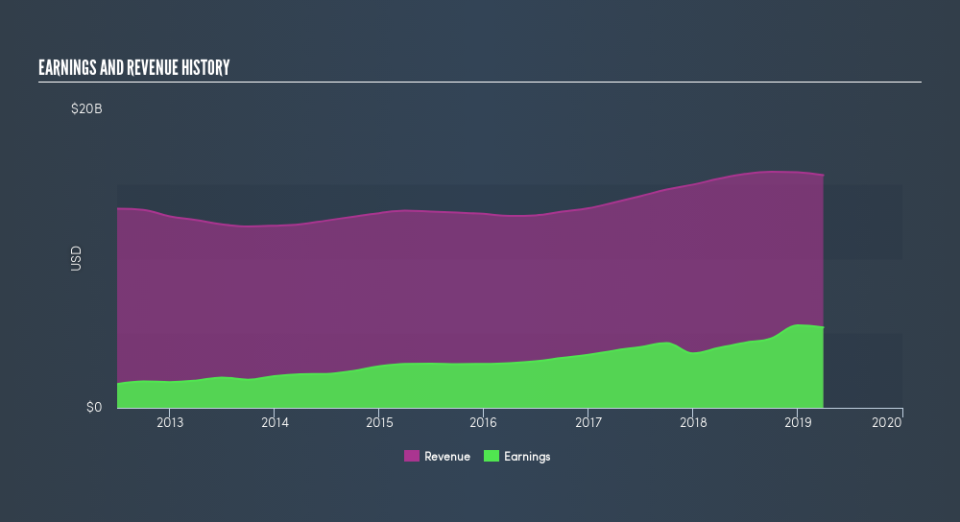Does Texas Instruments Incorporated's (NASDAQ:TXN) 34% Earnings Growth Reflect The Long-Term Trend?

Want to participate in a short research study? Help shape the future of investing tools and you could win a $250 gift card!
When Texas Instruments Incorporated (NASDAQ:TXN) released its most recent earnings update (31 March 2019), I wanted to understand how these figures stacked up against its past performance. The two benchmarks I used were Texas Instruments's average earnings over the past couple of years, and its industry performance. These are useful yardsticks to help me gauge whether or not TXN actually performed well. Below is a quick commentary on how I see TXN has performed.
See our latest analysis for Texas Instruments
How Well Did TXN Perform?
TXN's trailing twelve-month earnings (from 31 March 2019) of US$5.4b has jumped 34% compared to the previous year.
Furthermore, this one-year growth rate has exceeded its 5-year annual growth average of 16%, indicating the rate at which TXN is growing has accelerated. How has it been able to do this? Let's see if it is solely because of industry tailwinds, or if Texas Instruments has experienced some company-specific growth.
In terms of returns from investment, Texas Instruments has invested its equity funds well leading to a 64% return on equity (ROE), above the sensible minimum of 20%. Furthermore, its return on assets (ROA) of 32% exceeds the US Semiconductor industry of 8.0%, indicating Texas Instruments has used its assets more efficiently. And finally, its return on capital (ROC), which also accounts for Texas Instruments’s debt level, has increased over the past 3 years from 32% to 42%.
What does this mean?
Though Texas Instruments's past data is helpful, it is only one aspect of my investment thesis. Positive growth and profitability are what investors like to see in a company’s track record, but how do we properly assess sustainability? You should continue to research Texas Instruments to get a better picture of the stock by looking at:
Future Outlook: What are well-informed industry analysts predicting for TXN’s future growth? Take a look at our free research report of analyst consensus for TXN’s outlook.
Financial Health: Are TXN’s operations financially sustainable? Balance sheets can be hard to analyze, which is why we’ve done it for you. Check out our financial health checks here.
Other High-Performing Stocks: Are there other stocks that provide better prospects with proven track records? Explore our free list of these great stocks here.
NB: Figures in this article are calculated using data from the trailing twelve months from 31 March 2019. This may not be consistent with full year annual report figures.
We aim to bring you long-term focused research analysis driven by fundamental data. Note that our analysis may not factor in the latest price-sensitive company announcements or qualitative material.
If you spot an error that warrants correction, please contact the editor at editorial-team@simplywallst.com. This article by Simply Wall St is general in nature. It does not constitute a recommendation to buy or sell any stock, and does not take account of your objectives, or your financial situation. Simply Wall St has no position in the stocks mentioned. Thank you for reading.

 Yahoo Finance
Yahoo Finance 
